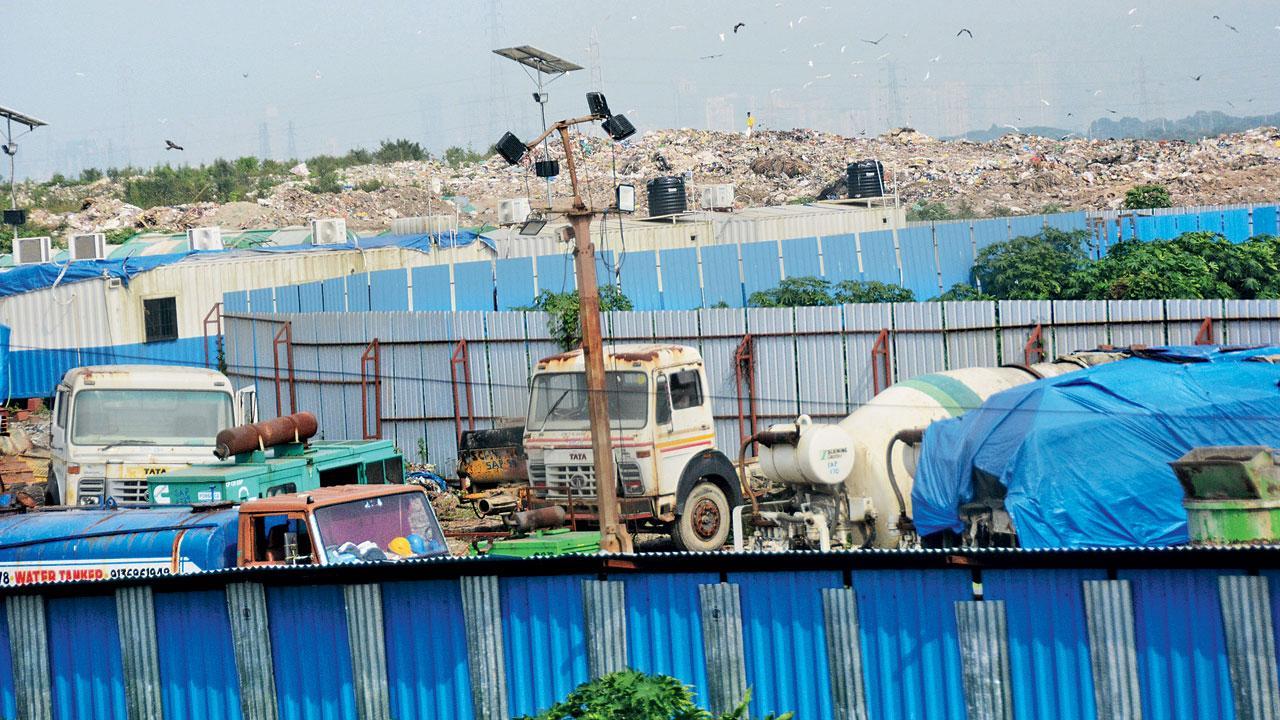Residents of Govandi, Deonar and Mankhurd find that waste-to-energy facility being built in locality will have incinerator, are worried of ill effects of smoke from it

Work on at the Deonar dumping ground for the WTE plant. Pic/Sayyed Sameer Abedi
After years of petitions and protests to get the biomedical waste treatment plant moved from their backyard to avoid health hazards, residents of Govandi, Deonar and Mankhurd feel they are back to square one. They have learnt that the Deonar waste-to-energy (WTE) facility being built in their neighbourhood will have an incinerator, which they fear will emit smoke.
Before this, locals claim, they had little idea of what the WTE plant would be like. The residents' group Govandi New Sangam Welfare Society has been writing to Maharashtra Pollution Control Board (MPCB) about it. The locals, who have been fighting for the shifting of SMS Envoclean, the city's sole biomedical waste treatment plant in Deonar, got documents pertaining to the plans, various approvals and environment clearance granted to the WTE. They are now questioning authorities if the smoke emitted from the plant will spread pollution and pose health hazards.
Locals frustrated
“They are talking about air pollution control measures, etc. Can’t they give us in writing that this will not affect our health, or pollute the air? They said the same things about SMS Envoclean. We have lived with thick black smoke emitting from the SMS envoclean during and after the COVID-19 pandemic, deteriorating the health of many in the area,” said Fayyaz Shaikh, a local and president of Govandi New Sangam Welfare Society.
Also read:
World rejects WTEs
“We came across many articles that mention the Centre for Science and Environment (CSE) report of 2018, according to which, the first such plant was established in Timarpur in Delhi in the year 1987, but later shut down. Further, we found that across Europe and even China, WTE plants are being proactively shut down because they are said to emit carcinogenic dioxins and furans,” said Shaikh.
The Deonar dumping ground, established in 1927, spans 120 hectares. Deonar receives around 600 metric tonnes (mt) of around 7,000 metric tonnes of waste generated every day in Mumbai. The Deonar WTE will have a capacity of 600 mt per day, on 12.19 hectares of land for R504 crore, at the city's oldest dumping ground. The plant will generate 4 MW of electricity and incinerate waste.
Conditions for plant
The Maharashtra State Environment Impact Assessment Authority (SEIAA) has approved BMC proposal subject to certain conditions, including the use of fly ash generated by the plant for brick manufacturing and road construction, air pollution control measures, and separate funds to implement the environmental management plan. It has directed the BMC to establish an exclusive Environment Management Cell (EMC), as well as a groundwater level monitoring system and measures to prevent groundwater pollution.
Besides locals, activists and environmentalists have been opposing the project. As required by the 2006 Environment Impact Assessment Notification, which involves public input for draft impact assessments, a public hearing for the project was held on April 27, 2021.
‘BMC did not inform’
Bilal Khan, a social activist of Ghar Bachao Ghar Banao Andolan, said, “Less than 100 people were in attendance at the hearing, in fact, only one resident from Deonar was in attendance. This was because of the pandemic and because the civic body did not inform people properly. Asked what the BMC did to inform locals about the hearing, its officials told me a notice about the hearing was published in newspapers. The majority of locals do not know anything about this project. It is the government's responsibility to inform them and make them aware about every process involved.”
MPCB Member Secretary Ashok Shingare said, “It is the responsibility of BMC to ensure the safety of the people there. It is difficult for me to comment on the details of the project as I have not seen the plan or report. However, if residents have issues pertaining to pollution and have written to us we will look into the matter.”
 Subscribe today by clicking the link and stay updated with the latest news!" Click here!
Subscribe today by clicking the link and stay updated with the latest news!" Click here!








